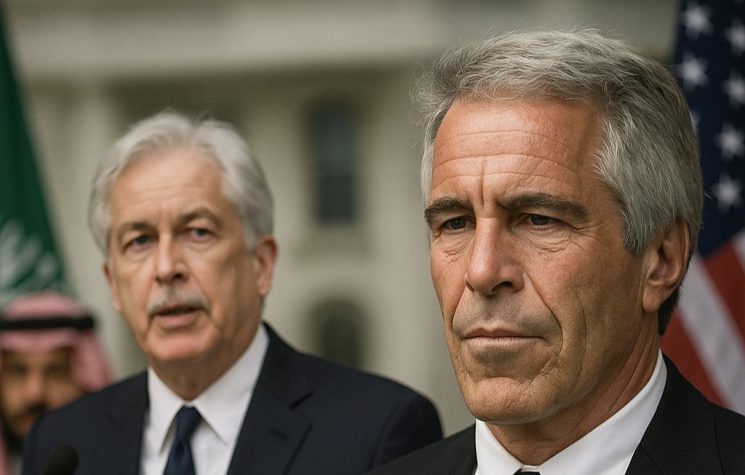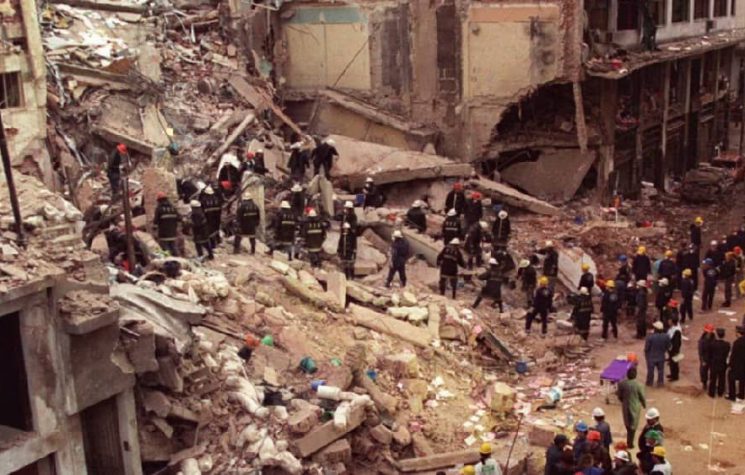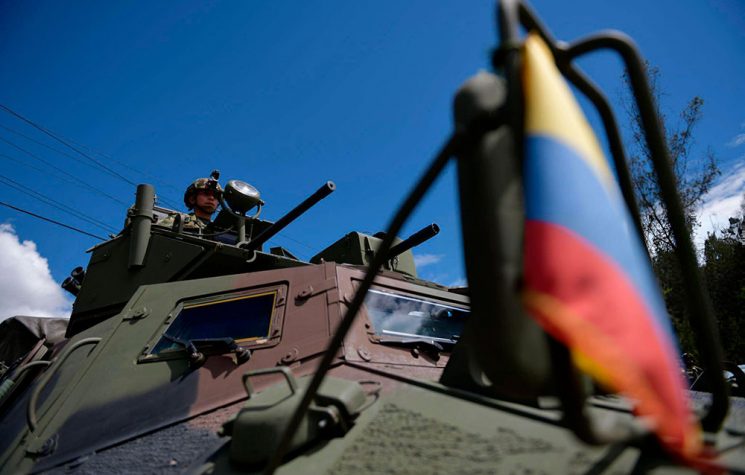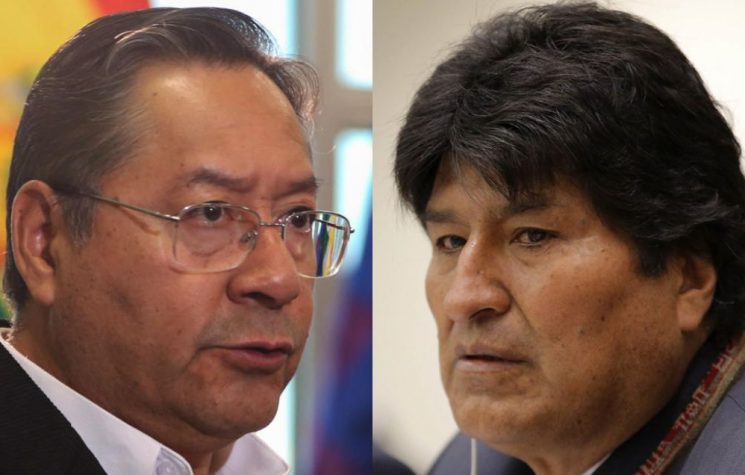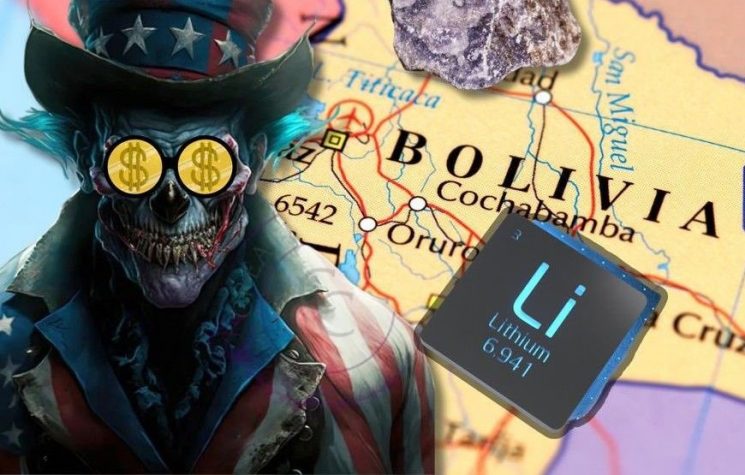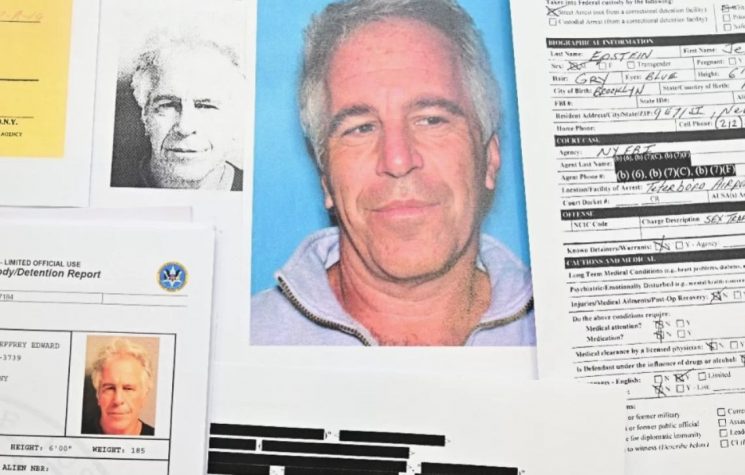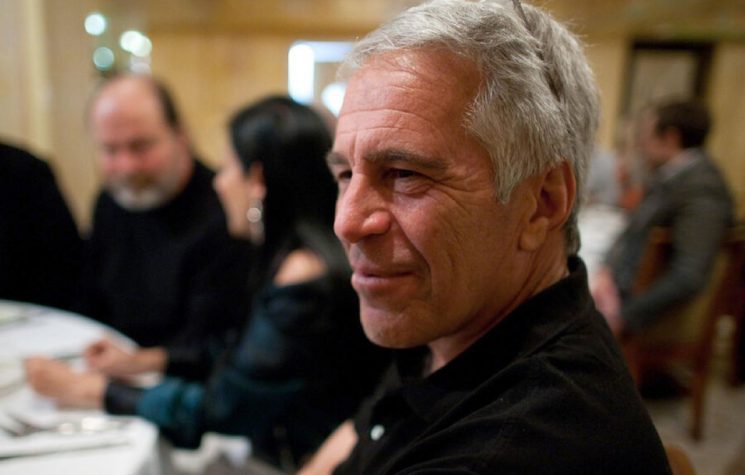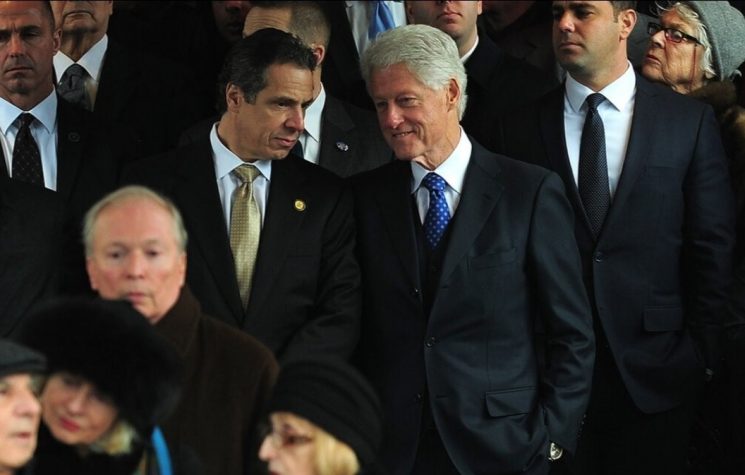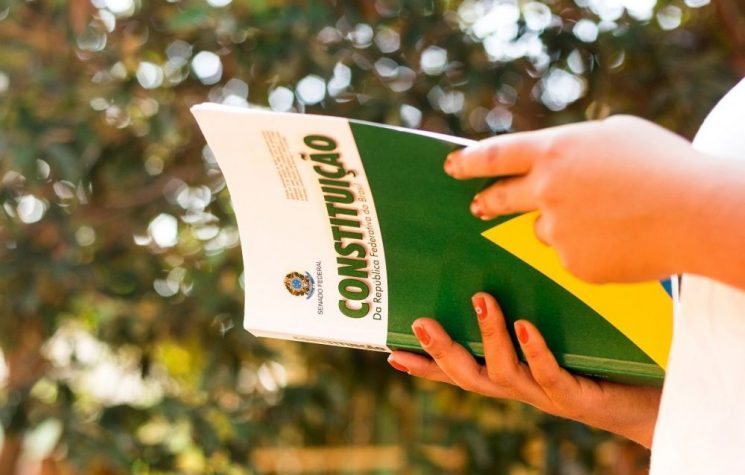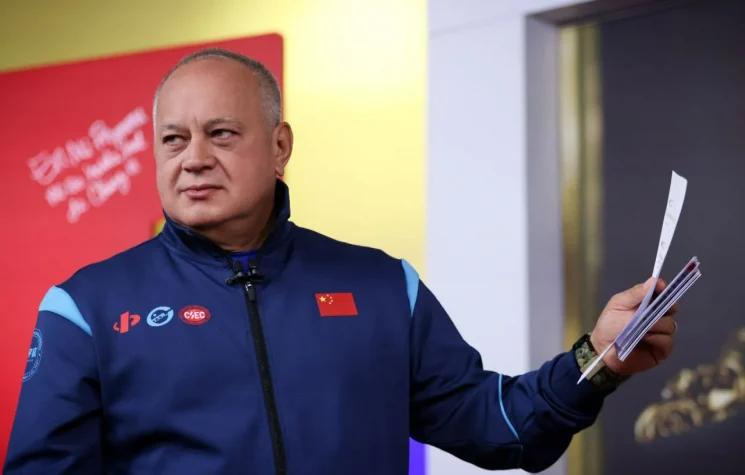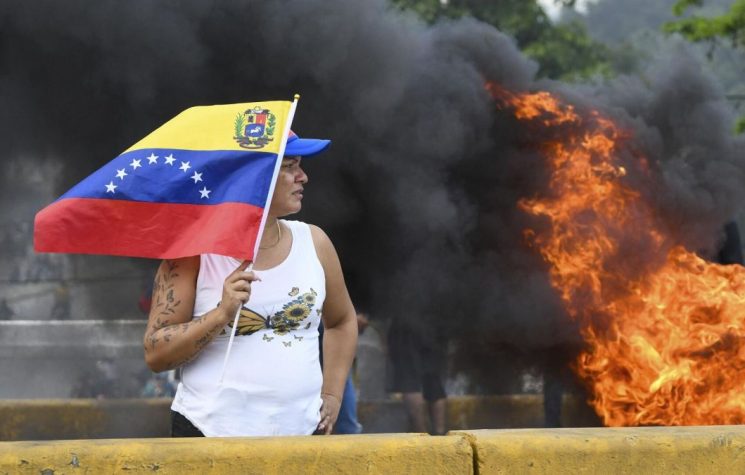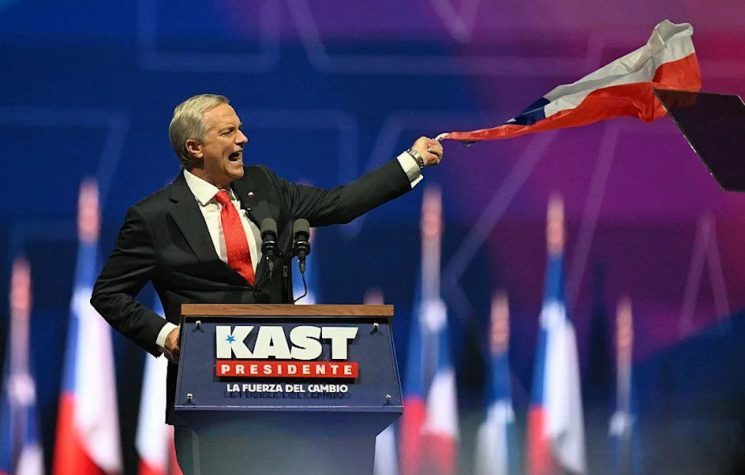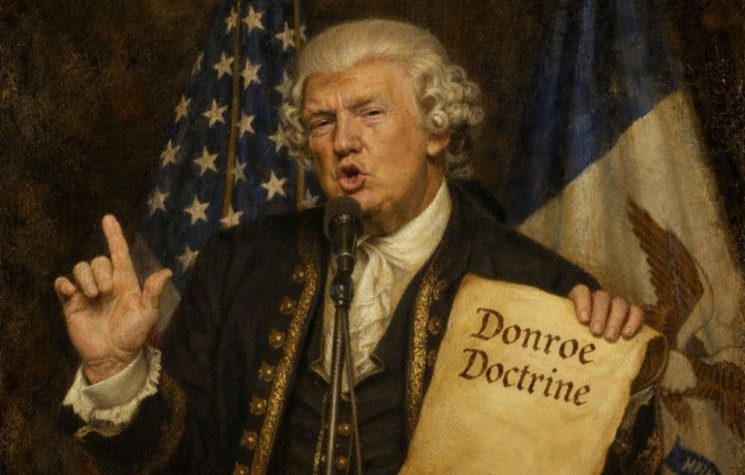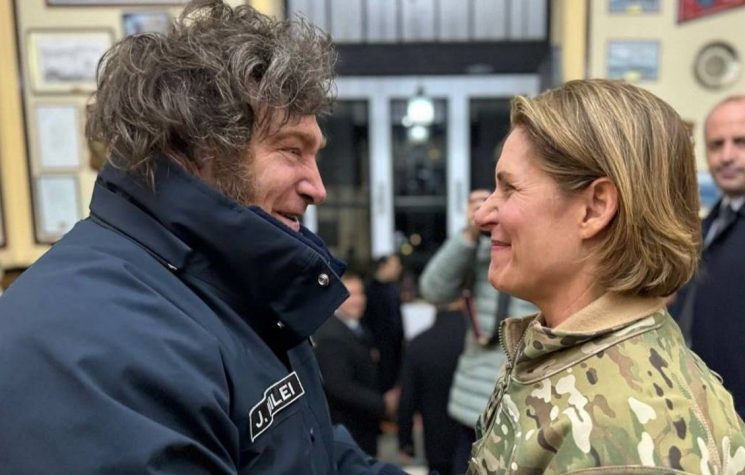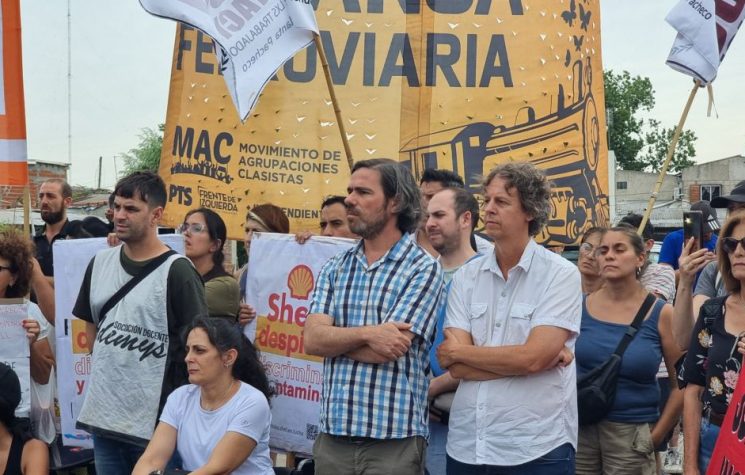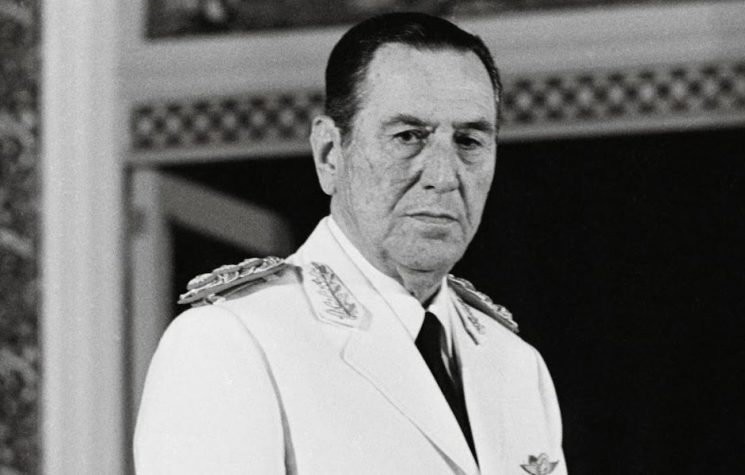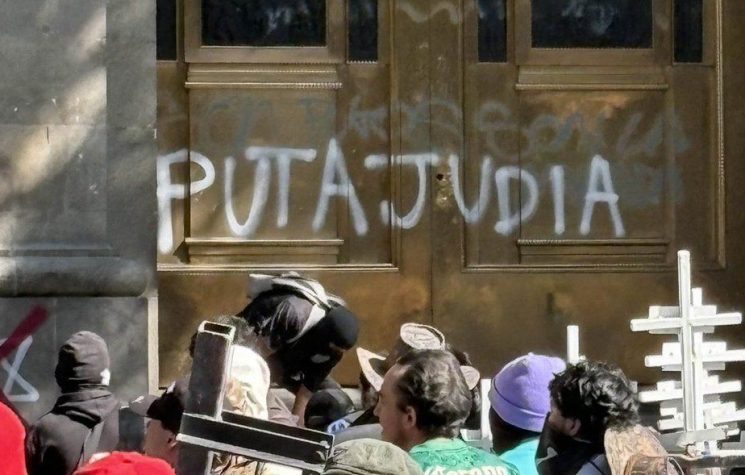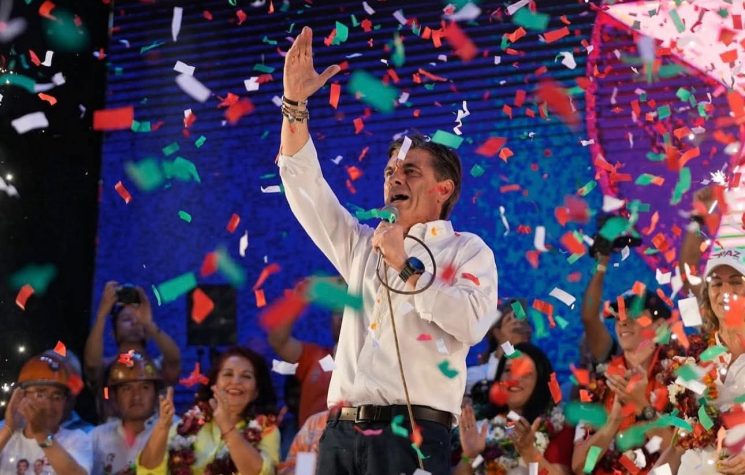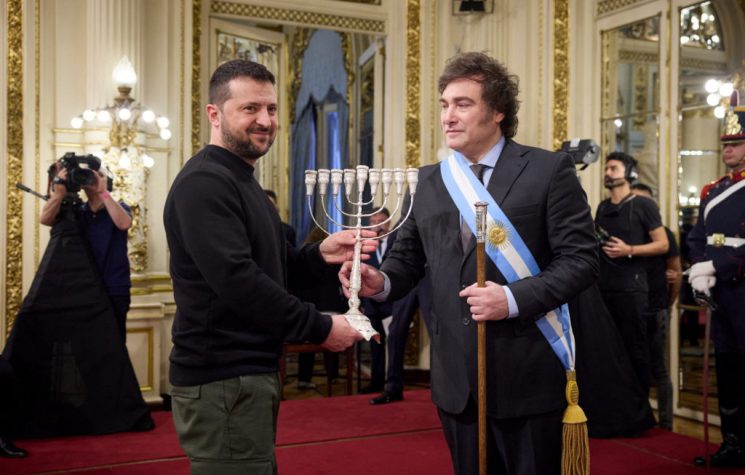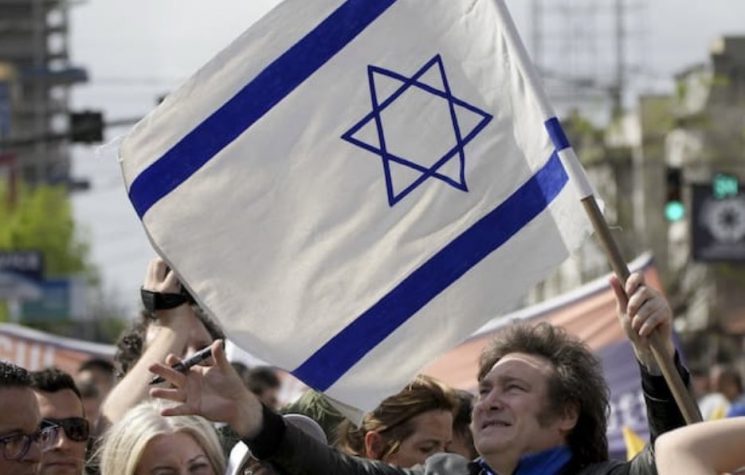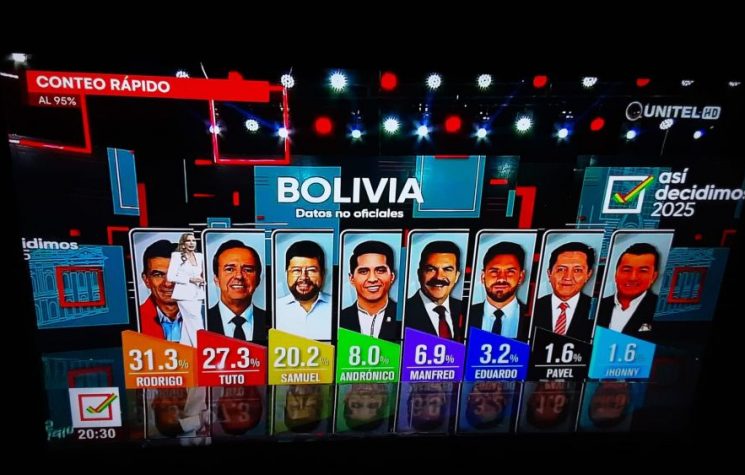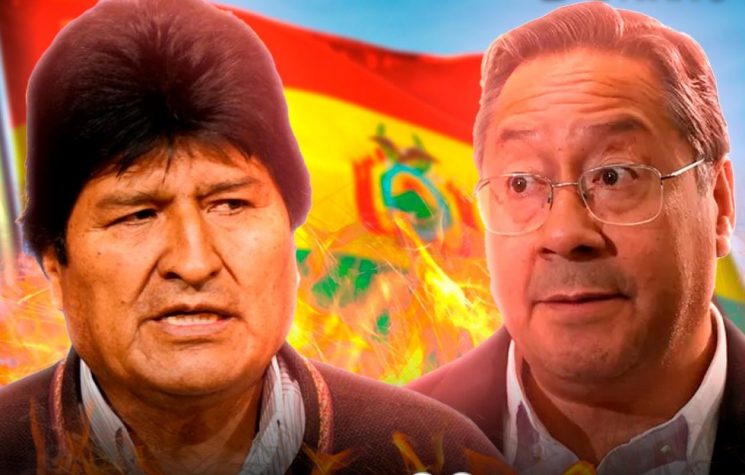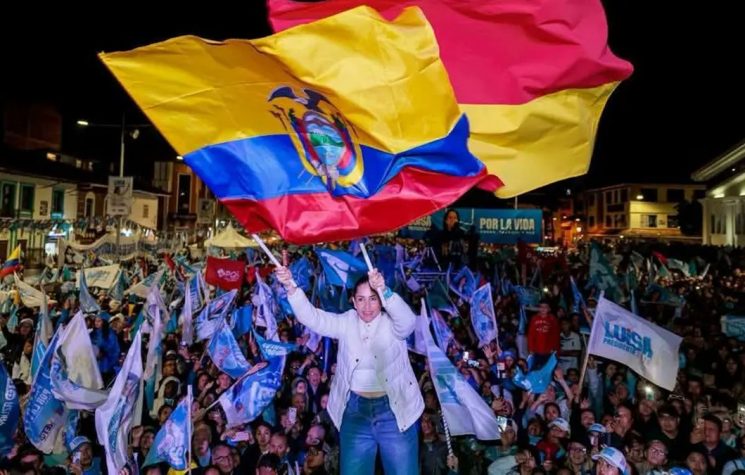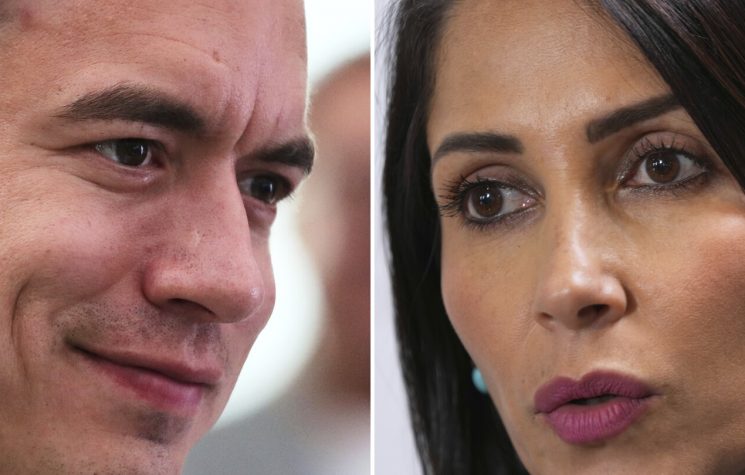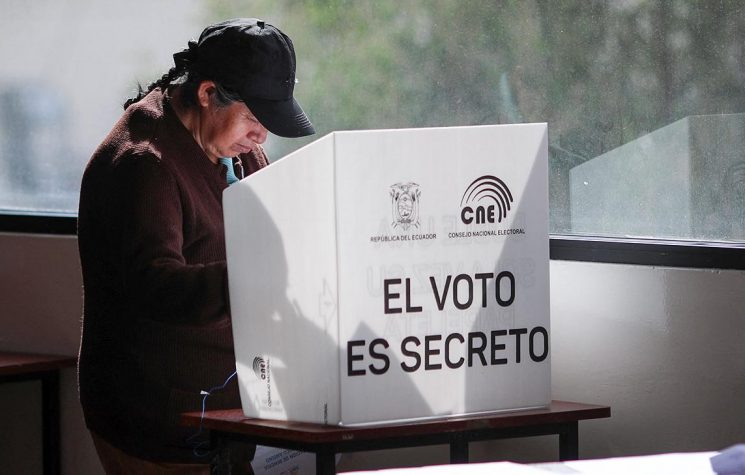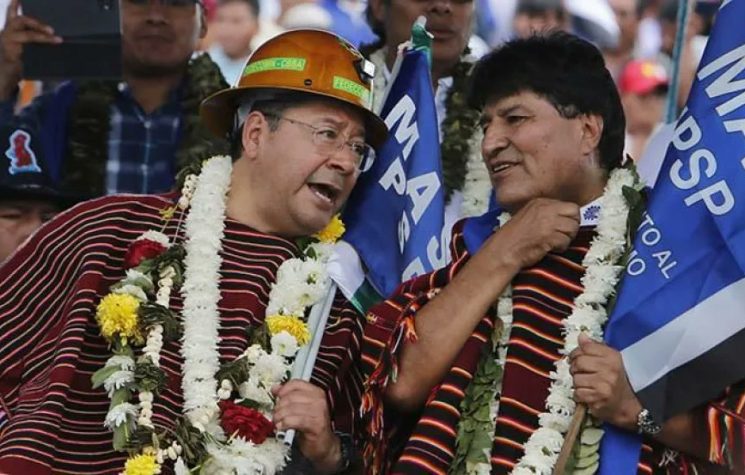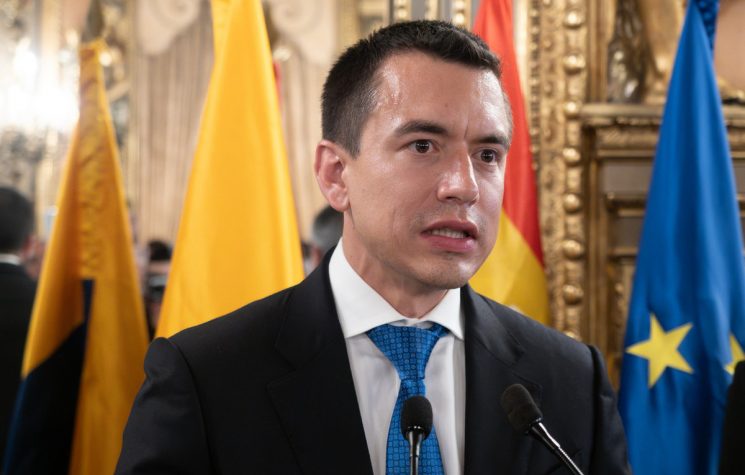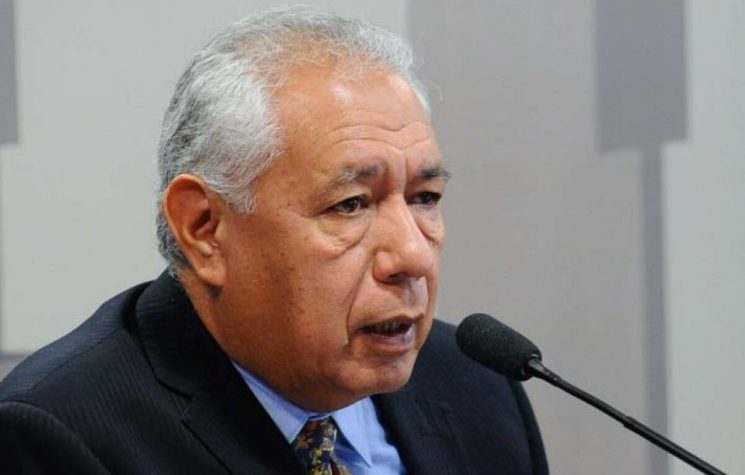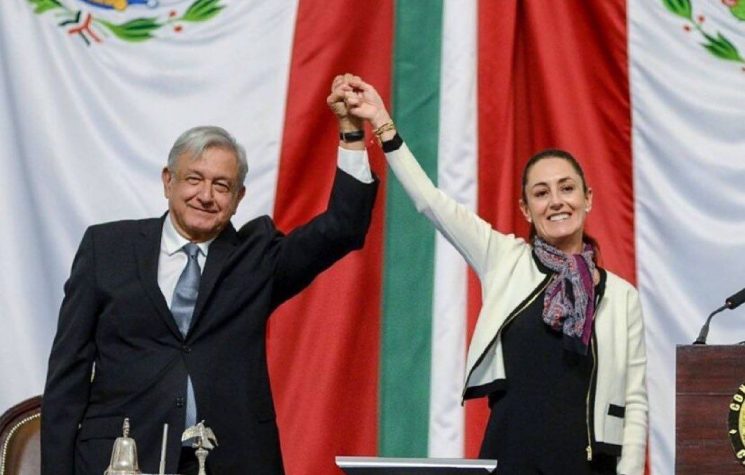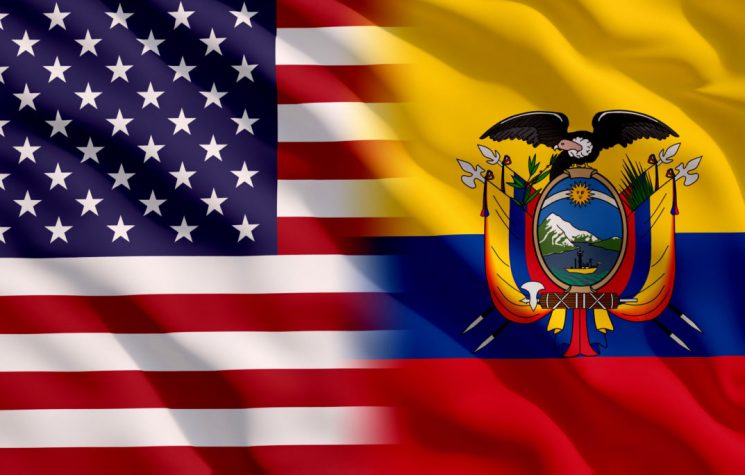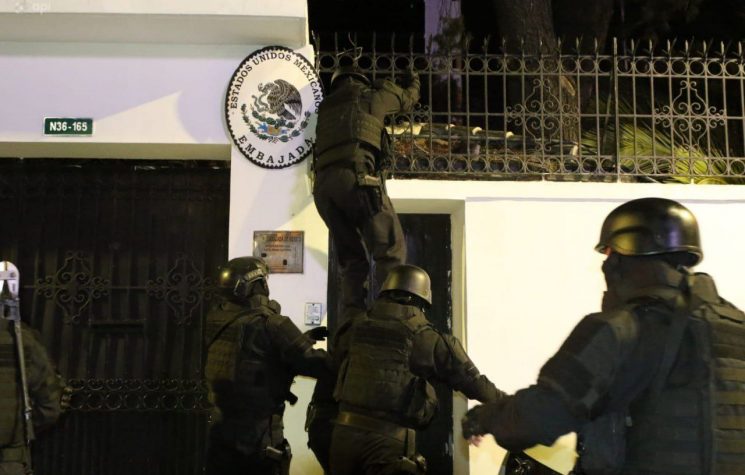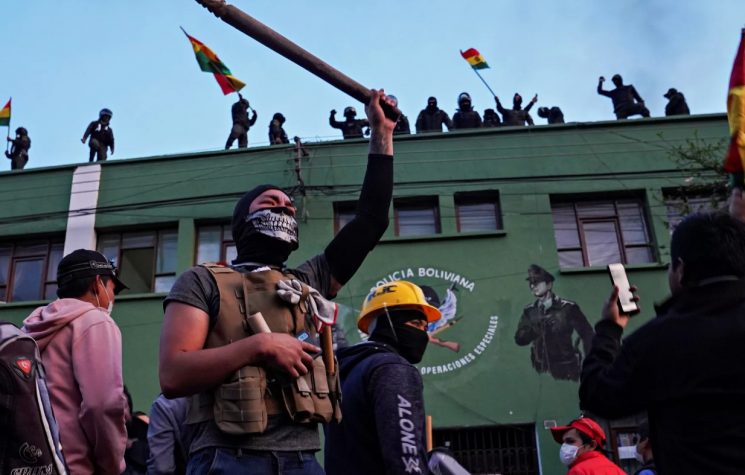The ongoing imperialist coup works to facilitate western domination and hinder the path to independence for Latin America.
❗️Join us on Telegram![]() , Twitter
, Twitter![]() , and VK
, and VK![]() .
.
Contact us: info@strategic-culture.su
Crime, violence and drug trafficking are nothing new to any Latin American – with the honorable exception of Cubans. But in recent months there has been a very strange sequence of events, not so much because of the events themselves, but because of the national and international political situation in which they are inserted.
As I noted in late January, the wave of violence is connected to the rise of right-wing or far-right governments aligned with the United States. The first evidence of this was the election of Daniel Noboa in Ecuador. Coincidentally or not, it was accompanied by a nationwide criminal uprising that served as the perfect justification for Noboa to apply a policy of repression and closure of the regime, handing over power to the military and allowing the arrival of new U.S. agents, including military and members of the FBI, to supposedly reinforce the fight against drug trafficking.
He declared: “We need international cooperation. I am happy to accept U.S. cooperation. We need equipment, we need weapons, we need information, and I think this is a global problem.” According to Noboa, the situation is one of “armed conflict” against “terrorism” and this would not be exclusive to Ecuador, but a problem that “transcends national borders”.
In turn, the spokeswoman for the U.S. National Security Council, Adrienne Watson, said: “we have increased our support for Ecuadorian forces in matters of law enforcement and defense”, while “attorneys from the Department of Justice, as well as agents of the FBI and the Drug Enforcement Agency [DEA], continue to support Ecuador’s investigations into recent political and criminal violence.”
In practically a month of government, Noboa dramatically deepened Ecuador’s dependence on the United States, and, in the midst of the genocide in Gaza, he also raised the level of relations with Israel. The Ecuadorian president even seriously threatened to hand over weapons purchased from Russia to the USA, which did not happen because Moscow would cut off banana imports from Quito. In any case, Noboa clearly demonstrated his willingness to submit fully to Washington’s designs.
The Ecuadorian government claims that the country is experiencing a state of “serious internal commotion”, which is reminiscent of the alarming tone used by Javier Milei since he took control of the government in Argentina. The Argentine president has been threatening the arrival of the country’s “worst crisis in history” if his neoliberal shock measures are not applied. One of them is the Decree of Necessity and Urgency – look at the alarming name of the measure, carefully chosen for propaganda purposes.
Milei’s shock doctrine
It even seems that the wave of violence in Latin America is linked to the rise of the right, especially the election of Milei. As I had suggested, he is the great pivot of the new stage of coups in the region planned by the United States government. Argentina, as the second largest country on the continent, needs to counter the Brazilian danger, represented by the policy of rapprochement with China and Russia promoted by President Lula.
The Milei government has offered to send security contingents to Ecuador and other countries that need it. “We are willing to help them and send security forces if necessary,” said Patricia Bullrich, Argentine Security Minister – an ally of former president Mauricio Macri, directly linked to big imperialist capital.
But the wave of violence from criminal gangs also hits Argentina itself. In Rosario, the country’s third largest city, schools were closed, garbage collection was suspended and drivers stopped their services due to lack of security following a series of murders attributed to drug traffickers. Bullrich announced the deployment of hundreds of federal forces agents and invoked the anti-terrorism law in Rosario.
The trigger for the rebellion would have been the treatment given by prison guards to prisoners at a local penitentiary unit, imitating the humiliation imposed by Nayib Bukele’s regime in El Salvador. Both Milei and Noboa have been very sympathetic to their Salvadoran counterpart’s draconian policies in dealing with crime. Shortly after being elected, Noboa, for example, announced the construction of Salvadoran-style maximum security prisons. The governor of Santa Fe, where the city of Rosario is located, is an ally of Milei and has been inspired by Bukele’s policy of repression.
All of Milei’s measures comply with the shock therapy script, masterfully applied by Pinochet in Chile and Yeltsin in Russia. It consists of a rapid privatization of the economy supported by violent state repression, to break any resistance to the dismantling of social policies and the handing over of national resources to foreign bankers. This entire policy is coordinated from the USA.
Control over a strategic zone
The existence of organized crime, a traditional scourge in Latin America, has always been the perfect excuse for the establishment of a repressive dictatorship in order to ensure the implementation of the U.S. neoliberal looting policy. This has particularly occurred since the 1980s, with Colombia as a laboratory, where the U.S. imposed Plan Colombia to invade and militarily control the country. To this day, Colombia is Washington’s main representative on the continent, despite the opposition of current president Gustavo Petro.
We are seeing the beginning of a repeat of Plan Colombia in Ecuador, and possibly also in Argentina. Milei has just handed over control of one of South America’s main commercial routes, the Paraguay-Paraná waterway, to the U.S. This will enable the U.S. army to access a key point in the region, between Argentina, Paraguay, Uruguay, Bolivia and Brazil. This area has become notable in the last two decades for the transit of narcotics, being the target of enormous attention by the United States government, which has also suggested the presence of Islamic terrorist cells in the area. By “coincidence”, many of the goods from China arrive there and a large part of the agricultural production aimed at export comes from there. The Guarani Aquifer is also located in this region, one of the main sources of fresh water in the world. Also by “coincidence”, the city of Rosario, scene of the new criminal wave in Argentina, is on the banks of the Paraná River and hosts the main port in this region.
The head of U.S. Southern Command, Laura Richardson, recently visited Ecuador, in the midst of the security crisis, and Argentina. She also passed through Uruguay, a key country for this river route, where she met with members of the government and the Armed Forces. The Uruguayan trade union central denounced that “the true objective of this visit is the interest in fresh water, since Uruguay shares the Guarani Aquifer”, as well as the possibility of building an American military base in the country. Uruguay has been governed for four years by the conservative right, and President Luis Lacalle Pou was elected thanks to the interference of the military around the new far-right party, the Cabildo Abierto, which looks nostalgically at the times of military rule between 1973 and 1985.
2024 elections, important chapter in the continental coup
Recent independent press reports have shown the DEA’s involvement in espionage and destabilization in Venezuela, Bolivia and Mexico. In these United States government programs, the DEA worked together and encouraged the operations of drug traffickers.
President Andrés Manuel López Obrador has repeatedly denounced that the North American press has been carrying out a campaign of lies against him, trying to involve him in drug trafficking. Last year, Republicans exerted pressure to militarily invade Mexico, under the excuse of combating drug trafficking, which would be a “threat” to U.S. security. The fact that 70% of the weapons seized since the beginning of the Obrador government originated in the United States is hidden by this campaign.
AMLO will not run for re-election, but his party will try to stay in power. It is not in the U.S. interest to accept a successor who maintains the nationalist and moderately independent policy pursued by Obrador. Even if Claudia Sheinbaum is elected, she will be pressured to break with AMLO’s policies.
The president of UNASUR, Ernesto Samper, told the Sputnik News agency that “all the weight of the fight against drugs will be transferred to Mexico” to destabilize the electoral process, and this is part of the U.S. strategy of new soft coups in Latin America. This is the opinion of someone who presided over Colombia in the 1990s, during the height of organized crime in the country.
The truly terrorist campaign carried out by the mainstream media regarding security and violence aims, firstly, to elect candidates from the right or extreme right (invariably linked to the USA) and, if this is not possible, to force the candidates of the left to apply a right-wing and submissive policy to the USA, repressing the population, eroding their own prestige with their voters, handing the country even more over to Washington and opening the way for a subsequent right-wing arrival to power. Ultimately, if necessary, this campaign aims to prepare the ground for American military intervention.
Nayib Bukele was elected in El Salvador precisely because of his repressive program, in full harmony with the objectives of the United States on the continent. He imposed a military dictatorship, imprisoned tens of thousands of poor people (many of them innocent, according to their families and friends), established iron control over all the powers of the State and the press and has just been re-elected – unconstitutionally – in a election in which the opposition had no chance of victory.
Previously, Jair Bolsonaro was also elected under the banner of fighting crime in Brazil. And, despite all the repression against its supporters – in fact, against its most harmless supporters, not against the dangerous ones – Bolsonarism remains very strong. At the end of the year there will be municipal elections in Brazil and, as has always happened, public security and criminal violence will be the main topics of debate. Taking into account the current correlation of political forces, despite Lula being the president, Bolsonarism should be strengthened.
And in Brazil the wave of violence has also hit hard. The escape of criminals from a high security prison in the state of Rio Grande do Norte generated a huge campaign in the media and, mainly, among the opposition, in favor of tightening repressive laws. The Lula government, infested with right-wing elements and linked to American interests, is seeking to please these repressive sectors, believing that it will be able to combat violence and, at the same time, satisfy those who ask for an iron hand against crime.
But the left was not designed to fight crime through state repression. The master in this regard continues to be the right, which has a greater preference among the upper and middle classes, for whom State repression serves to maintain their privileges against the lower classes. And Lula should already start opening his eyes to the governor of the country’s main state, Tarcísio de Freitas, who was elected to command São Paulo due to Bolsonaro’s support. Freitas appears to be Bolsonaro’s heir – if he really cannot run for president of the Republic – for the race in 2026, and is currently applying a bloodthirsty repression to the poor population of the state of São Paulo under the justification of combating crime. Like Bolsonaro, Freitas is aligned with Israel, which sends weapons and equipment used in the murder of the masses to Brazil, and which must already be discussing regime change in Brazil with the U.S. due to Lula’s denunciations of the genocide in Gaza.
Lula will be on the wrong path if he chooses to fight crime with more police repression, a path that is being dangerously followed by Xiomara Castro in Honduras. With the unanimous support of the right-wing opposition, she imposed a state of exception in search of the same results as Bukele in the neighboring country, but so far it has not worked. Taking this path, for the left, actually means leveling the ground for the return of the right to government. That’s why the U.S. applauds her.
Two cards up your sleeve
Right now, the United States appears to have two options available, both of which are being worked on successfully. One is the election of aligned rulers, under the banner of combating organized crime. Another is military intervention supposedly to directly combat this evil. Haiti is the most explicit case within this second option, a country where the impoverished population is rising up against imperialist rule, inspired by the nationalist coups in French-speaking Africa and the example of Russia itself and where the imminent imperialist intervention through the UN against the gangs will serve precisely to suppress that popular revolt.
Latin America is the most violent continent in the world directly because of suffocating imperialist domination, which has been plundering its assets for 500 years and leaving it poor and miserable, resulting in social inequality that is exploited by the same imperialists to maintain their control over it. El Salvador is an example of this: 80% of alleged criminals arrested are young people, and youth is the sector most affected by the social crisis, with a lack of schools, jobs and prospects for the future, pushing young people towards crime. Many of these young people come from the countryside, where at least half of the population lives in poverty.
Instead of being inspired by El Salvador, which will not be able to solve the crime problem in the long term, precisely because it perpetuates social inequalities, Latin American governments should be inspired by Cuba, the only country that has not suffered from this social scourge in last sixty years, precisely because of the eradication of hunger, poverty, social inequalities and submission to the United States. And where there is full freedom, contrary to what supporters of Bukele, Bolsonaro and Milei say, these are the true defenders of the suppression of democratic freedoms.
But this requires unity, and the ongoing imperialist coup works to further divide the continent, in order to facilitate western domination and hinder the path to independence for Latin America.
















